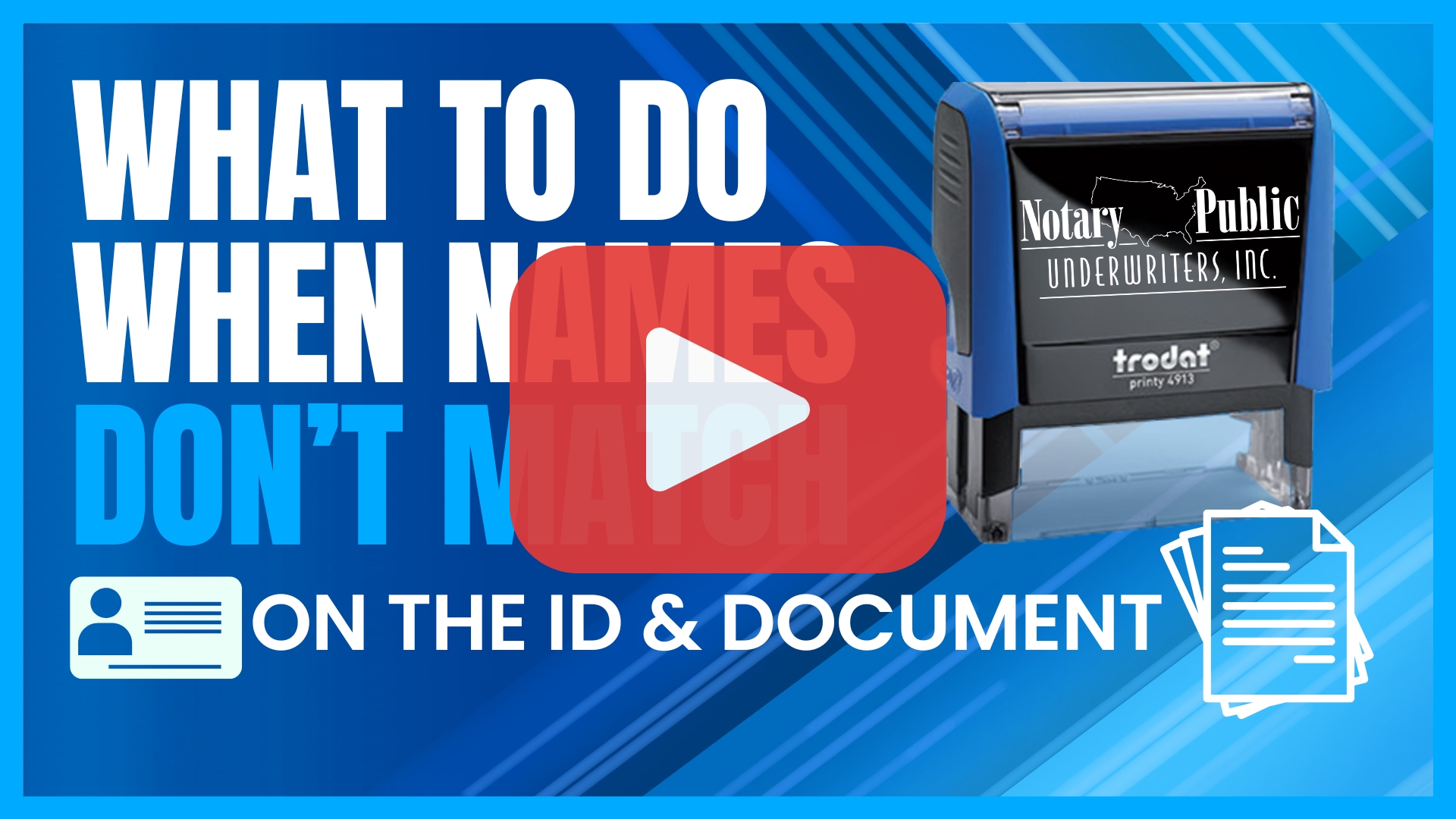Notary Public Underwriters Blog
What to Do When Names Don't Match
- Details
- Published: December 2, 2015

Revised 07/01/2024
Notaries often face situations where the name on a signer's ID does not exactly match the name on the document being signed. This issue is common, especially if someone recently married or divorced and has not updated their ID or if they use nicknames socially but their legal name is on the documents. Here's how notaries can resolve these issues:
Review the Discrepancy
To determine if a minor discrepancy is acceptable, use the “reasonableness test." If there is a difference between a document and an ID, the signer can provide additional evidence to show that they use both name variations. Unless the notary has evidence or reason to believe fraud is occurring, the notary could reasonably assume that the signer and the person named in the document are the same.
For example, if the signer's name on the document is "Jane A. Doe," and the signer's ID reads "Jane Ann Doe," it is reasonable for a notary to conclude they are the same person because the signer provided enough information to verify their identity.
Be cautious in situations where the discrepancy involves suffixes like "Jr." or "Sr." Unfortunately, there have been cases of fraud involving family members with the same name but different suffixes, such as "Jr." and "Sr.," "III" and "IV."
For example, if the document says "John Smith, Sr.," but the ID says "John Smith," the notary would need more proof to confirm that the person standing before them is "John Smith, Sr."
Ask for an Alternative Form of Identification
If you cannot determine if the signer named in the document is the same as the person standing before you, ask the signer if they have another form of ID that matches the name on the document and is acceptable under your state's notary law.
No Acceptable Alternative ID
If the signer does not have another ID that meets your state's notary law requirements, another option may be available.
Credible Witness
If your state allows it, you may ask if the signer has someone who can act as a credible witness, subject to your state's notary laws. Most states that authorize the use of a credible witness allow:
- One credible witness personally known by the notary and who personally knows the principal signer; or
- Two credible witnesses not personally known by the notary but who the notary can identify by examining their satisfactory evidence of identification.
Notaries must follow all requirements of notary law and administrative rules for using a credible witness, so be sure you know these requirements.
If the signer can't provide an alternative form of identification or credible witness(es) to resolve the discrepancy, you cannot proceed with the notarization. Politely decline the transaction and offer to notarize the document once the person can provide proof of their identity.
Finally, always document every notarial act you perform in a record book (journal) of notarial acts, including how you identified each person. Record any special circumstances, including if you could not complete the notarization and why, in your journal entry.
Related Article(s)
Can I Notarize When the Person Has No ID?
What to Do When the Notary Certificate Is Missing?
How to Handle Out-Of-State Documents
What Should I Do When There's No Room for My Notary Stamp?
Can I Notarize a Document That Is Already Signed?
How to Assess Signer Awareness or Coercion
How to Notarize Signatures on Handwritten Documents

